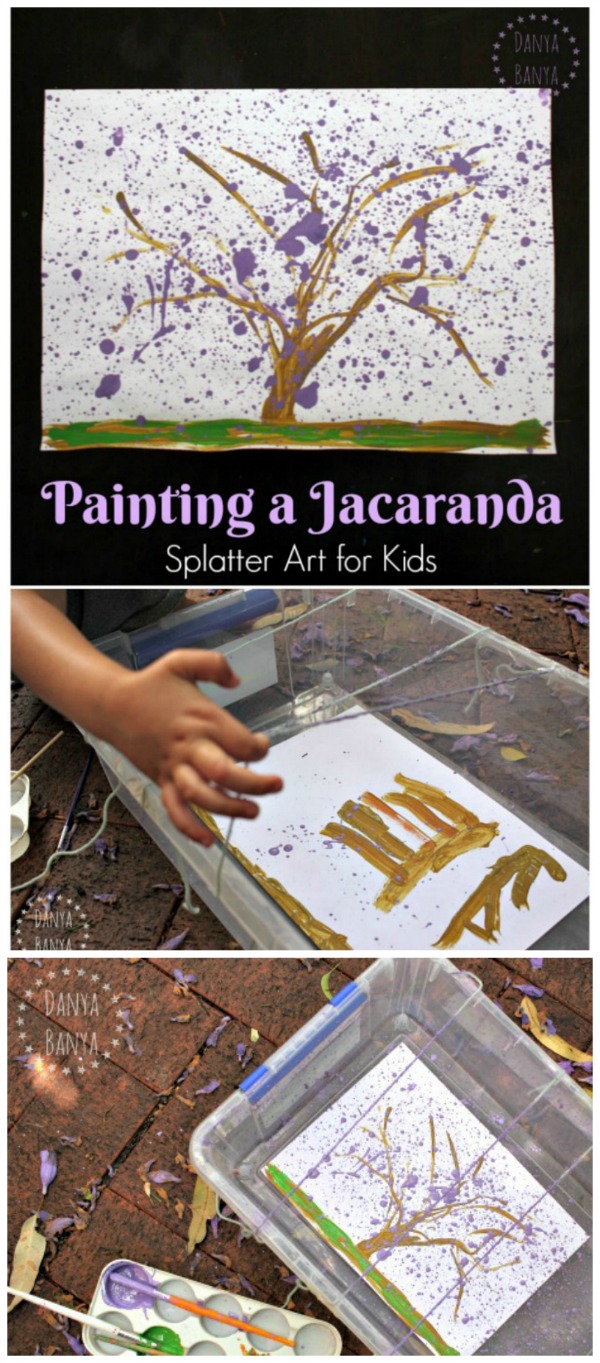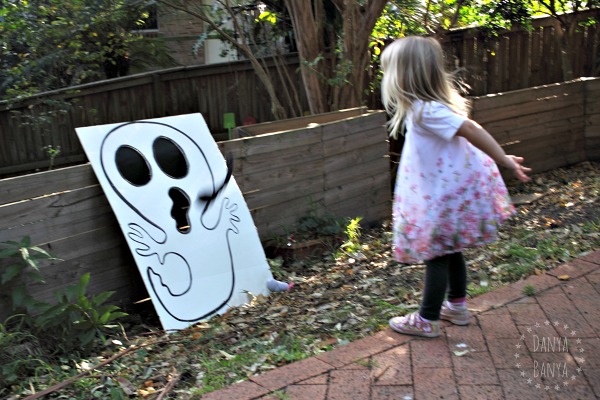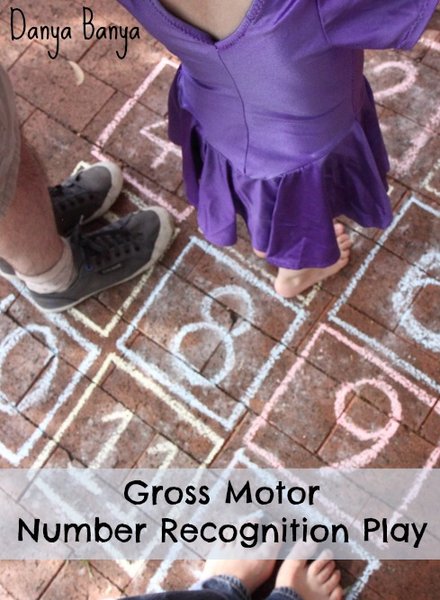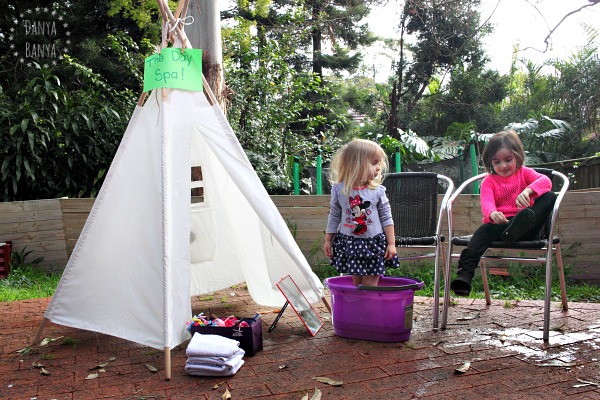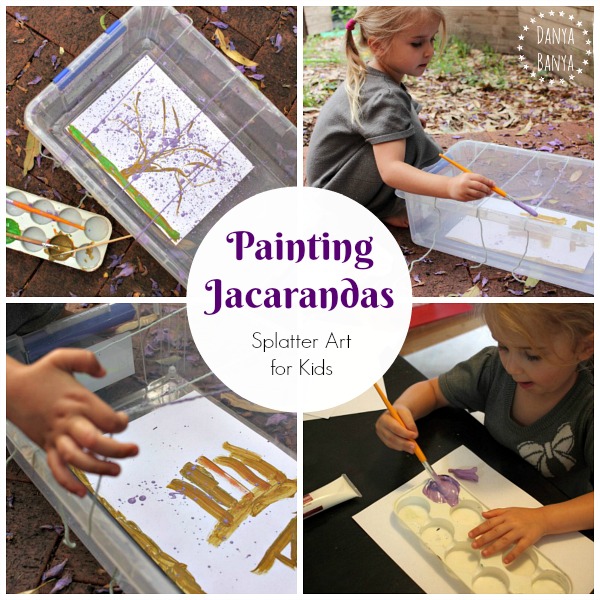
This is just a quick post today, as I really want to get this one out before November ends and Jacaranda season finishes in Sydney for another year.
Jacaranda trees aren’t native to Australia, but Australian’s have certainly planted a lot over the years!
If you’ve ever been to Sydney in November, then you’ll know what I’m talking about. Suddenly, alarmingly, the suburbs become dotted with purple. Trees that were barren only a few days earlier take on a bright purple flush
It becomes a game. As we drive along, the kids point out the Jacaranda trees. Some streets only have a couple. Some are lined with them.
And then, a few weeks later, the flowers start to fall, colouring the ground purple too.
Painting Jacaranda Trees
Bee’s been doing some colour mixing at preschool lately, so I thought we would try to blend our own colours. I put out acrylic paints in red, blue, yellow and white. We talked about how the first three are the primary colours, which can be mixed to create other colours, and white can help make those colours lighter. Bee wanted to try mixing red, blue and white first, which is lucky, because that’s exactly what we needed to make Jacaranda purple. She ducked outside to pick up a Jacaranda flower from the backyard, so we could compare.
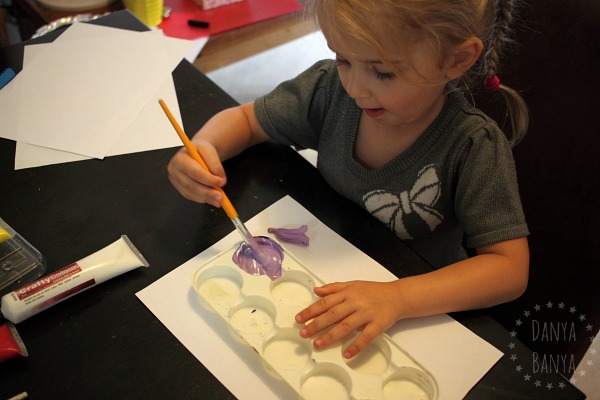
We then had a try mixing yellow and blue (making green) and yellow and red (making orange), to complete the triangle of how primary colours mix to create secondary colours.
Then I asked what she thought would happen if I added a drop of blue to the orange. Bee wasn’t quite sure, but certainly wasn’t expecting brown! She ducked outside to visually check the hue of the Jacaranda tree trunk and we added more white until she thought we had the right shade.
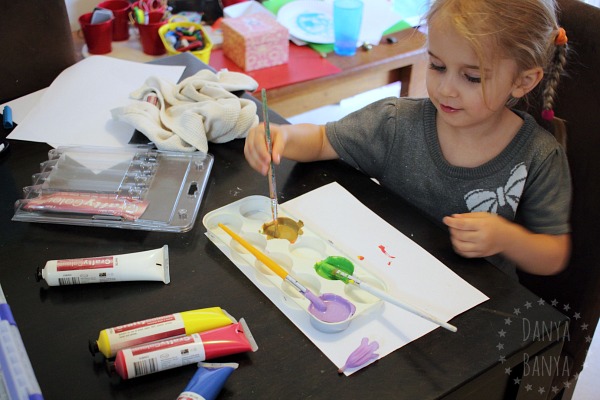
We painted our tree trunks and the ground brown.
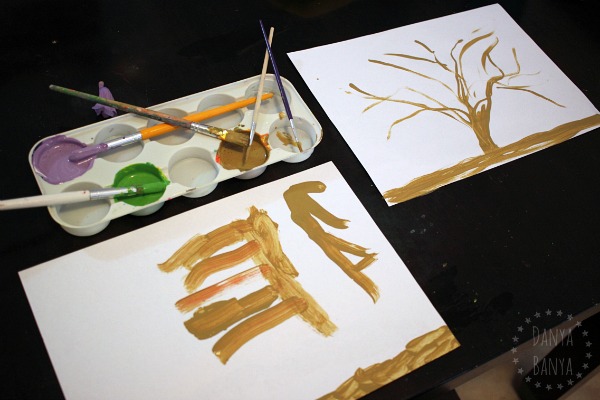 After painting, Bee commented that she should have chosen a smaller paint brush. It’s something that we’ve been working on – how different sized paint brushes create different effects. I didn’t comment, but I did kinda like that she’s self-evaluating her work.
After painting, Bee commented that she should have chosen a smaller paint brush. It’s something that we’ve been working on – how different sized paint brushes create different effects. I didn’t comment, but I did kinda like that she’s self-evaluating her work.
I also added some green grass to mine – just because there was all that green paint just sitting there…
Then we took the paintings outside for some splatter art fun! (You might notice that our backyard is dotted with actual purple Jacaranda flowers – the inspiration for this project!)
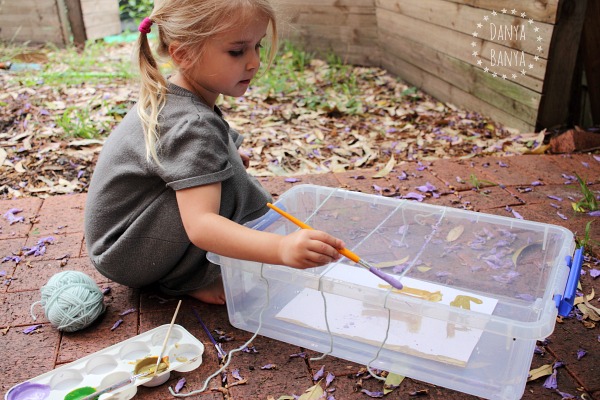
We put our artworks in the bottom of a low-sided storage tub, and taped a few pieces of wool across the top. Then we added paint to the wool, and flicked it onto the artwork below.
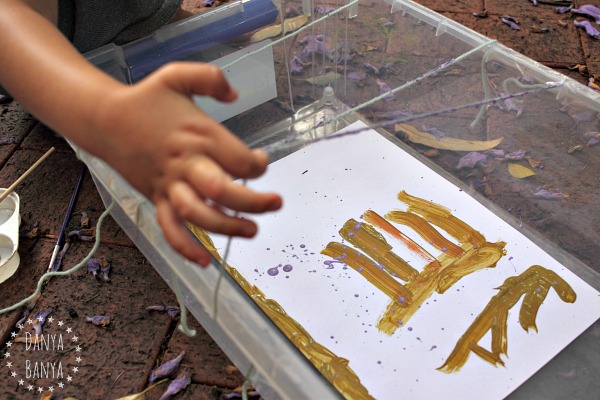
It creates a lovely splatter effect!
We also tried flicking the paint on by banging the paintbrush against our hand. This created bigger droplets, which was also very interesting, but for this project we preferred the finer splatter effect that flicking the wool produced.
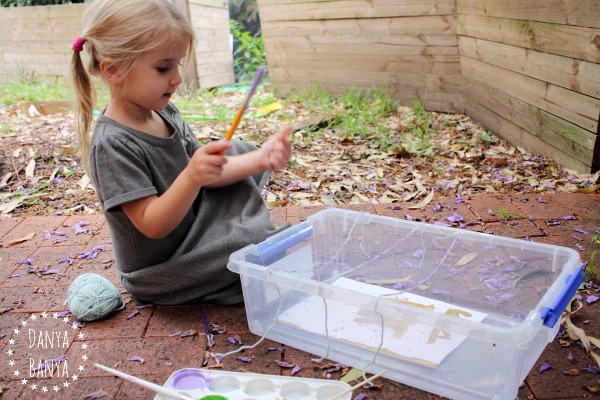
Bee helped create purple splatters on my artwork too. We had to do quite a few splatters until we were satisfied. Some of the wool became loose at times, but we just stuck it back on again.
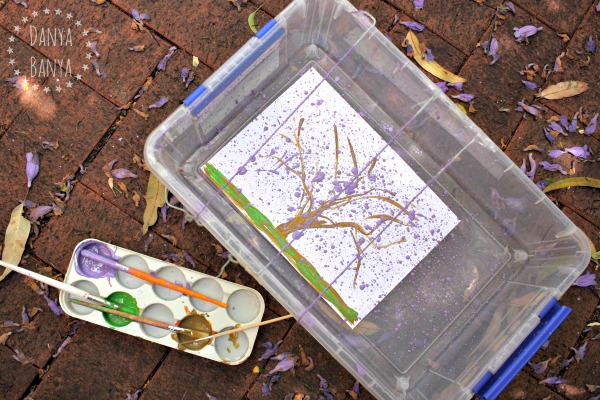 Here’s our finished pieces!
Here’s our finished pieces!
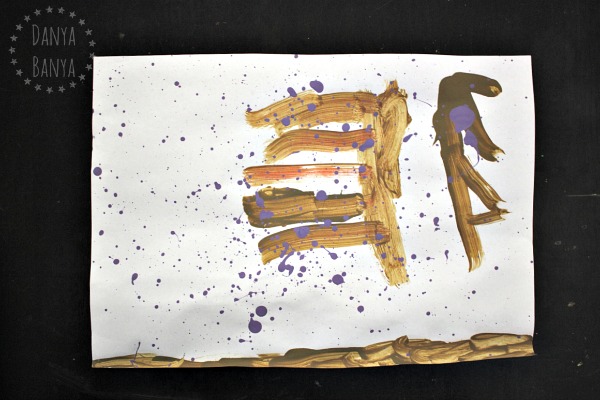
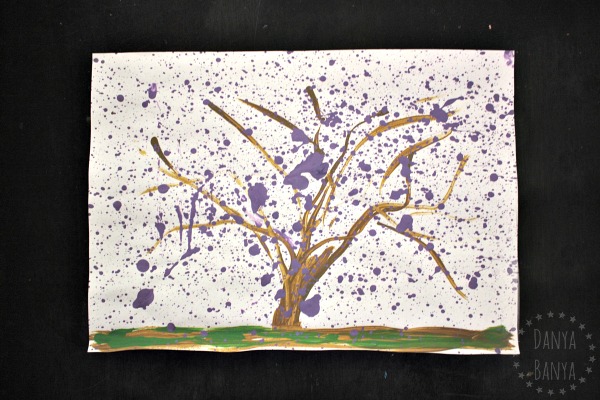
As always in our house, our end results are collaborative. Bee did many of the splatters on both artworks, so I can’t claim the one I started as ‘mine’ anymore!
Next time I’ll try using a shoebox with elastic bands stretched around it instead of a storage tub, as I’m keen to see if the elastic produces a better splatter. Will keep you posted on how we go!
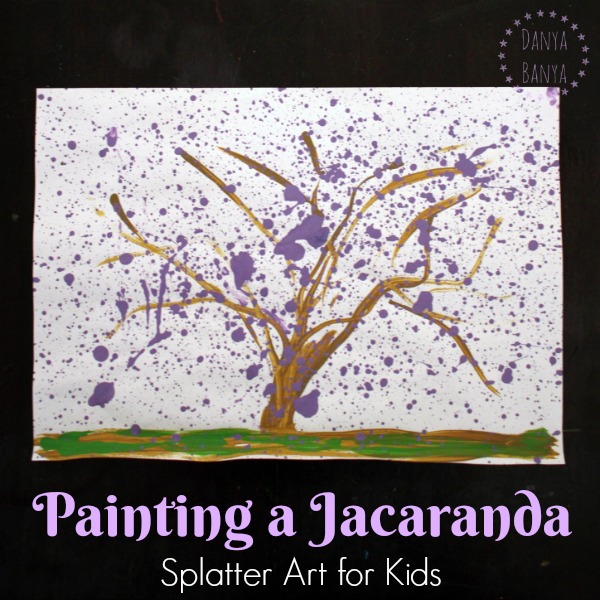
Be A Fun Mum has another splatter painting technique for creating beautiful Jacaranda tree designs, using watercolours. Check it out!
And even though Jacaranda trees aren’t native to Australia, they are so iconic in Sydney that I’m adding this activity to our Australia Activities for Kids page. We’ve got a bunch of Aussie flora activities on there now, including:
- Golden wattle craft
- Using pom poms to paint wattle
- Painting bottlebrush flowers
You might like some of the ideas on our Australia for Kids pinterest board too.
And of course, you can always subscribe to our newsletter, to receive activities like this sent straight to your Inbox.
xx Danya
